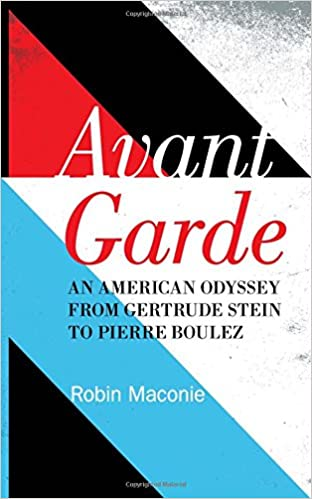

Most ebook files are in PDF format, so you can easily read them using various software such as Foxit Reader or directly on the Google Chrome browser.
Some ebook files are released by publishers in other formats such as .awz, .mobi, .epub, .fb2, etc. You may need to install specific software to read these formats on mobile/PC, such as Calibre.
Please read the tutorial at this link: https://ebookbell.com/faq
We offer FREE conversion to the popular formats you request; however, this may take some time. Therefore, right after payment, please email us, and we will try to provide the service as quickly as possible.
For some exceptional file formats or broken links (if any), please refrain from opening any disputes. Instead, email us first, and we will try to assist within a maximum of 6 hours.
EbookBell Team

4.4
102 reviewsGertrude Stein and philosopher Alfred North Whitehead were unlikely friends who spent most of their mature lives in exile: Stein in France and Whitehead in the United States. Their friendship was based on a mutual admiration for the philosophical pragmatism of William James and skepticism toward the European tradition of intellectual abstraction extending as far back as Plato and Aristotle. Though neither was musical, both were leading exponents of a new orientation toward time and knowledge acquisition that would go on to influence succeeding generations of composers. Through Virgil Thomson, Stein came to influence John Cage and the New York school of abstract music; through his teaching in the United States, Whitehead’s philosophy of time and cognition came to be seen in America and abroad as an alternative to Newtonian neoclassicism, an alternative clearly acknowledged in the metric modulations of Elliott Carter and Conlon Nancarrow as well as the post-1950 total serialism of Pierre Boulez and Karlheinz Stockhausen.
The seemingly unlikely influence of Stein and Whitehead on Thomson, Cage, Carter, and the minimalists tells a remarkable story of transmission within and among the arts and philosophy, one that Robin Maconie unravels through his series of essays in Avant Garde: An American Odyssey from Gertrude Stein to Pierre Boulez. Maconie explores, from Hollywood to Harvard, the way in which music functions as a form of communication across the boundaries of language, serving the causes of trade and diplomacy through its representation of national identity, emotional character, honorable intention, and social discipline. The study of music as a language inevitably became the object of information science after World War II, but, as Maconie notes, 60 years on, music’s refusal to yield to scientific elucidation has generated a stream of anti-music propaganda by a powerful collective of celebrity science writers. In a sequence of linked essays, Stockhausen specialist Robin Maconie reconsiders the role of music and music technology through careful examination of key modern concepts with respect to time, existence, identity, and relationship as formulated by such thinkers as Einstein, Russell, Whitehead, and Stein, along with Freud, Schoenberg, Wittgenstein, and Marcel Duchamp.
This foray into art, music, science, and philosophy is ideally suited for students and scholars of these disciplines, as well as those seeking to understand more deeply the influence these individuals had on one another’s work and modern music.
**